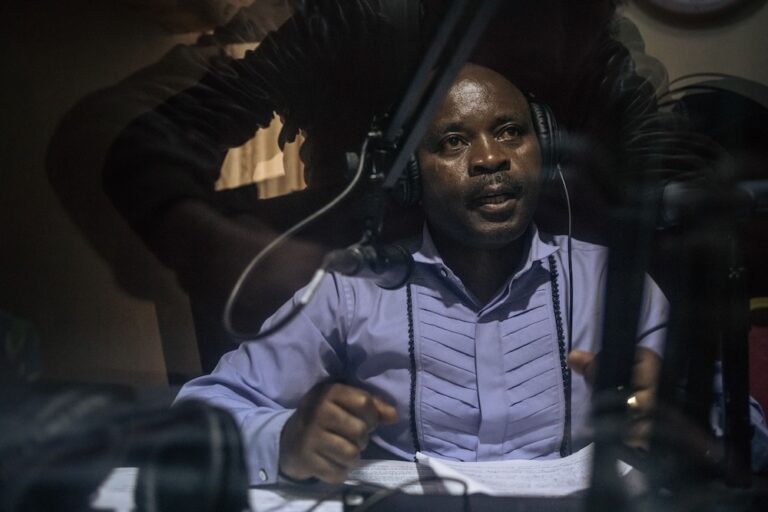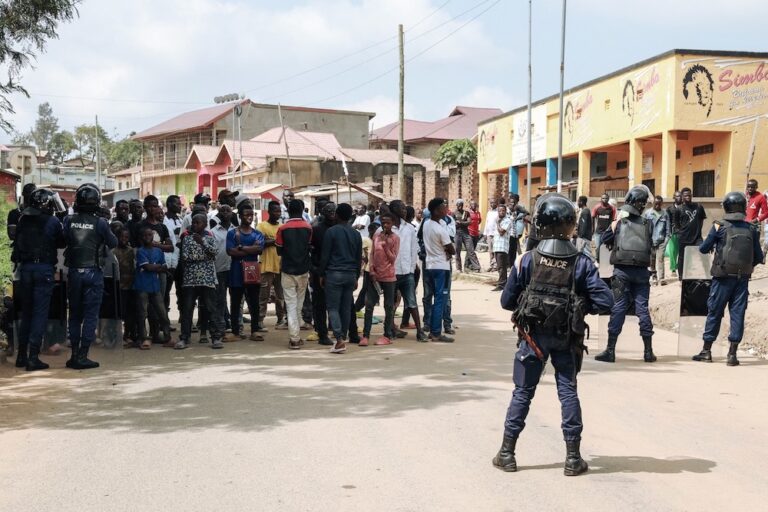(RSF/IFEX) – On 22 July 2002, RSF protested to officials in a rebel-controlled area of the Democratic Republic of Congo about their ban on the BBC’s correspondent in the country, Arnaud Zajtman. “This is a serious obstruction of press freedom and a working journalist,” said RSF Secretary-General Robert Ménard in a letter to Adolphe Onusumba, […]
(RSF/IFEX) – On 22 July 2002, RSF protested to officials in a rebel-controlled area of the Democratic Republic of Congo about their ban on the BBC’s correspondent in the country, Arnaud Zajtman.
“This is a serious obstruction of press freedom and a working journalist,” said RSF Secretary-General Robert Ménard in a letter to Adolphe Onusumba, president of the rebel group Congolese Rally for Democracy (Rassemblement congolais pour la démocratie, RCD), which controls the eastern region of Kivu. RCD troops are currently fighting Commander Patrick Masunzu’s troops in the region. “[The ban on the journalist] appears to be retaliation by the local authorities because they did not like his earlier reporting,” Ménard said, calling for the ban to be lifted.
Zajtman had obtained verbal permission from the RCD’s secretary-general and its information officer to go to the rebel area to report, but then got an e-mail from the head of the information department on 16 July forbidding him to do so. The e-mail read, “your offensive references to our president and the contempt and disrespect you have shown for our leadership oblige me to withdraw my permission.”
Zajtman said the ban was probably linked to one of his stories, broadcast on 26 May, in which it was reported that the rebels had massacred about 200 people in Kisangani. Just before the report went out on the BBC’s Africa service, Zajtman was threatened by Onusumba, who warned that if his report was broadcast, he would see to it that the journalist could never again report from rebel-controlled areas.
RSF notes that the RCD continues to harass the few media outlets that try to retain a degree of independence in their reporting. The rebels’ intelligence services arrested Wema Kennedy, head of Radio Muungano, on 7 March for announcing on the air that Onusumba was still in Kampala as the inter-Congolese negotiations were getting underway in Sun City, South Africa (see IFEX alerts of 18 and 14 March 2002).


